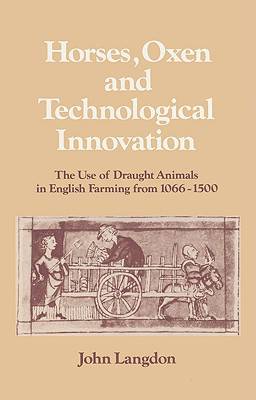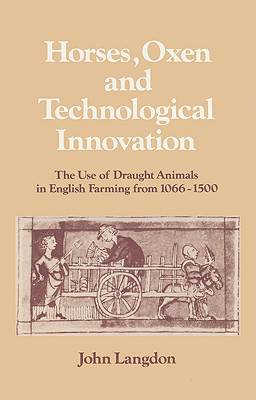
- Afhalen na 1 uur in een winkel met voorraad
- Gratis thuislevering in België vanaf € 30
- Ruim aanbod met 7 miljoen producten
- Afhalen na 1 uur in een winkel met voorraad
- Gratis thuislevering in België vanaf € 30
- Ruim aanbod met 7 miljoen producten
Zoeken
Horses, Oxen and Technological Innovation
The Use of Draught Animals in English Farming from 1066 1500
John Langdon, Langdon John
€ 95,45
+ 190 punten
Uitvoering
Omschrijving
The introduction of the horse brought many advantages to medieval English farming, particularly as an improvement to ploughing and hauling. But the replacement of oxen by horses was by no means inevitable, as the situation often depended upon a number of factors not immediately obvious to modern eyes. These factors, which included such environmental aspects as soil types and terrain, are evaluated to see how they affected the decision to use horses and oxen. The introduction of the horse is furthermore examined in relation to farm production, the improvement in marketing, and the development of regionalism; and various theories regarding technological innovation are assessed to see whether this or that innovation acted in a predictable way. Most importantly, the study affords a glimpse into the working of the minds of medieval farmers as they approached the problems of livelihood and survival.
Specificaties
Betrokkenen
- Auteur(s):
- Uitgeverij:
Inhoud
- Aantal bladzijden:
- 348
- Taal:
- Engels
- Reeks:
Eigenschappen
- Productcode (EAN):
- 9780521525084
- Verschijningsdatum:
- 8/07/2002
- Uitvoering:
- Paperback
- Formaat:
- Trade paperback (VS)
- Afmetingen:
- 142 mm x 216 mm
- Gewicht:
- 458 g

Alleen bij Standaard Boekhandel
+ 190 punten op je klantenkaart van Standaard Boekhandel
Beoordelingen
We publiceren alleen reviews die voldoen aan de voorwaarden voor reviews. Bekijk onze voorwaarden voor reviews.











